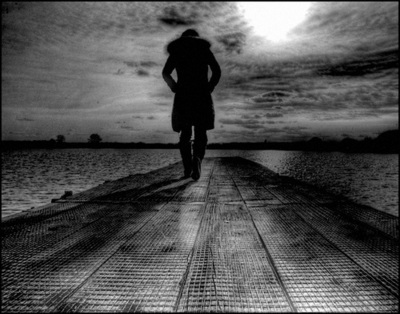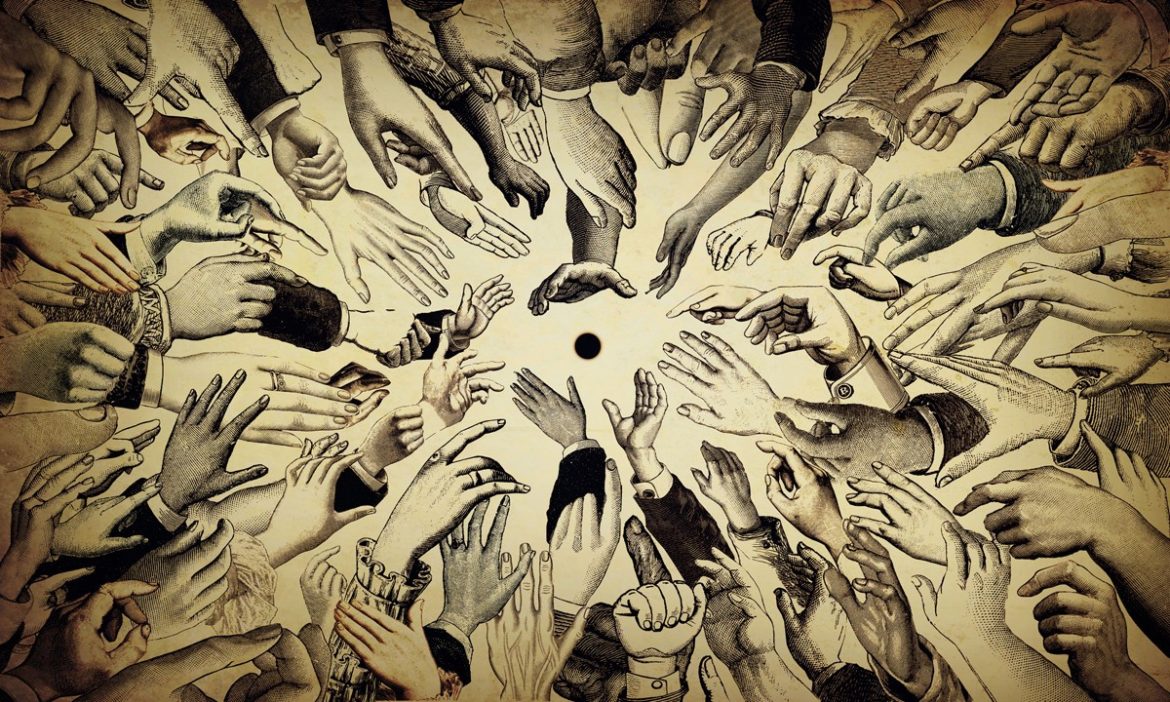Talking ‘bout my generation, the consensus has come to this: “But how about just giving up? Giving up or giving over. To what?”
I’ll tell you what. To darkness and deadness—the death of the heart. It’s easy to do, millions have given up on humanity, nearly everyone over the age of 21 in North America, whether they admit it or not.
Baby boomers are defined as the demographic group born during the post–World War II baby boom, between the years 1946 and 1964. They once set the bar, but now just keep digging a new bottom.
I was born in 1952. When I was in my teens, I estimate less than a tenth of young people my age or a few years older had quit on humanity.
 The percentage is much higher now. Most teenagers over the last 25 years start out cynical. Though if the Parkland High School survivors who have been standing up and speaking out so eloquently against America’s gun violence are any indication, there is hope for and in that generation.
The percentage is much higher now. Most teenagers over the last 25 years start out cynical. Though if the Parkland High School survivors who have been standing up and speaking out so eloquently against America’s gun violence are any indication, there is hope for and in that generation.
The problem is, hope is inherently a false thing. It arises from an ideal, and is rooted in time. Hope looks ahead to what we think should be, rather than at what is in the present (without resignation). Sooner or later hope gives out, and then one becomes a cynic, or worse, a ‘realist.’
Hope and hopelessness are seen as opposites, but they’re not two sides of the same coin. Hope is the projection of positive outcomes into the future, whereas hopelessness is the contraction of perceived horizons in the present.
As for my generation, I don’t know anyone except myself who hasn’t quit on humanity. And though they don’t usually admit it, most 30, 40 and 50-somethings feel the same way.
When one’s people perish, as the American people did in the early 1990’s (extending it back further into the past is an exercise in denial as much as denying it in the present), the vast majority of people emotionally experience it as the death of humanity.
And even those who aren’t conscious of how utterly superficial, empty, sentimental and rotten this culture has become, the need to adapt and conform is very strong, as it is in all people, none more so than Americans.
So people adapt to a dead culture by becoming dead themselves. That inward condition cuts across the political spectrum, and is equally shared by people on both the right and the left.
The fear and loathing of those on the right for people on the left, and the smug superiority of those on the left for people on the right, belies the shared, underlying source of enervation in the American body politic, which has gone global, like so much else from this godforsaken culture.
That isn’t to draw an equivalency between the reactionary right and social justice left. The left at least still attempts to have a heart, even as its proponents and activists are as cynical about the human prospect as “red pill” right-wingers.
The core psychological problem is a lack of emotional distinction. One’s people aren’t the world; the world isn’t the age; and the age isn’t humanity. For far too many people however, the first dimension elides unseen into the others.
That reflects the ancient human pattern of tribalism. Radical change begins by completely ending that mentality and emotional habit within oneself, and simply seeing oneself and others as human beings.
If you give up on humanity, even unconsciously, you give up on yourself and life. It’s legitimate to feel if one’s people have perished as a people. It’s legitimate to feel the present world and age are hopeless. But to believe that humanity is hopeless is to give up on life itself.
Under George Senior, patriarch of “the Greatest Generation,” America lost its soul and became hopeless. Has our age become hopeless, as the “free world” scrapes bottom under President Trump? Is it as Kafka said of his age, “There is hope. But not for us”?
become hopeless, as the “free world” scrapes bottom under President Trump? Is it as Kafka said of his age, “There is hope. But not for us”?
After all my generation’s idealism, activism and solipsism, the vast majority of aging boomers feel as one of the spokespeople for our generation recently said, “How about just giving up?” And you can be sure that by the time the rhetorical question was posed and printed in the NYT, it was the emotional default position for years.
The question becomes, once again, whether humankind can make the turn at this time away from man’s exponentially increasing fragmentation and disorder of the earth, culture, and ourselves.
There is no progress in consciousness, but there is a progression of man-made fragmentation and disorder. That is the great, open secret. As a species have we run out of chances to change course?
Given all the scientific, technological and social advances, why does the darkness of thought still rule over the light of insight? Is it, as Will Durant asked nearly a century ago, “Because the hard ambition of the narrowly acquisitive soul is forever destined to overcome the gentle and scrupulous aspirations of philosophers and saints?”
Perhaps, but asking the question keeps the flame burning, however flickeringly, in one’s heart.
As for the rest, the dead can come back to life—if they want to badly enough. Trouble is, most are comfortable in their deadness. The grateful dead.
Martin LeFevre

